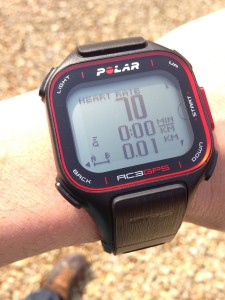The topic of the pulse rate is one that our patients and healthy athletes frequently bring to our attention.
With the increased availability of wearable monitors, the optimal exercise heart rate has become an almost universal subject of conversation, not only in the athletic community but also among those who are just embarking on an exercise program.
In general, people are interested in the pulse rate in 2 situations: the resting pulse rate, best measured upon waking in the morning, and the pulse rate during sustained aerobic exercise, such as running or cycling. Today we will address the pulse rate during exercise and leave the resting pulse rate for a separate article.
So what is the physiologic meaning of the exercise pulse rate? Is there a pulse rate one should aim for? What if the rate falls outside the target zone? Can the pulse rate ever be a clue to a cardiovascular problem? Let’s take these questions one by one.Read more

